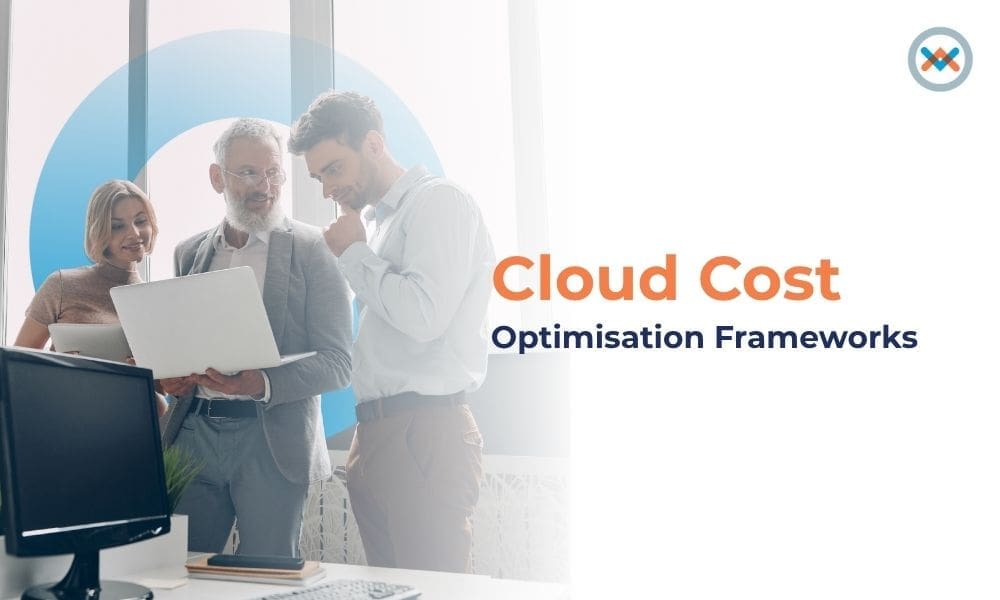Many cloud cost optimization efforts fail, not for lack of trying, but because the framework behind them isn’t strong enough. Companies often react to unexpected spikes in billing, implement short-term fixes, then hope things will go back to normal next month.
But cloud efficiency shouldn't be a guessing game. It should be driven by structured, strategic decision-making.
That’s why we’re breaking down three practical frameworks—6Rs, FinOps, and Workload-Based Optimization—that can help you take control of your cloud spending. Let’s dive into how each one works.
The 6Rs Framework
Originally designed as a cloud migration guide, the 6Rs have evolved into a strategic model for managing cloud investments. Each “R” represents a different approach to evaluating whether a workload should be moved, transformed, or retired.
Used correctly, the 6Rs give your team a clear path for transitioning workloads to the cloud, and help avoid unexpected cost blowouts from unplanned migrations.
Here’s a quick look at each of the 6Rs:
- Rehost – Move applications to the cloud without changes. It’s fast and low-risk, but can lead to higher costs over time.
- Replatform – Make minor adjustments so apps can use cloud-native services. A middle-ground between speed and efficiency.
- Refactor – Completely rewrite the app to align with cloud architecture. Higher upfront costs, but long-term efficiency gains.
- Repurchase – Replace legacy apps with SaaS alternatives. Ideal when maintenance costs of in-house systems are too high.
- Retain – Keep some workloads on-premises for now. Best for workloads not ready to be moved.
- Retire – Shut down apps that are outdated or no longer needed. This is often the quickest win for cutting unnecessary costs.
You might be asking: “Which “R” is right for us?” The answer depends on your workload’s business value, technical complexity, and urgency.
Use this cheat sheet as a quick guide:
| Scale | Time Pressure | Cost Sensitivity | Recommended Strategy |
| Small | High | Low | Rehost |
| Medium | Medium | Medium | Replatform |
| Large | Low | High | Refactor |
The FinOps Framework
Cloud costs aren’t just an IT problem, they’re a business-wide responsibility. As cloud environments grow more complex, finance, IT, and operations need to work in sync.
That’s the role of FinOps: a modern, collaborative approach to cloud financial management focused on visibility, accountability, and control.
FinOps also brings everyone closer to the day-to-day cloud operations, so there are no surprise bills or finger-pointing. Everything is transparent and trackable.
The framework runs in three continuous cycles: Inform, Optimize, and Operate. Each one builds on the other.
INFORM – Build Cloud Cost Visibility
Start by collecting consistent cloud usage data across all teams. Use proper tagging conventions, set up dashboards to track cloud ownership, and educate teams on per-workload costs.
Key metrics, such as cost per app, team, or customer, help build trust between finance and IT.
OPTIMIZE – Act on the Data
Once you know where your cloud spend is going, take action. Quick wins include rightsizing instances, using reserved instances, and cutting idle resources.
You can also automate low-priority tasks, like scheduling on/off cycles for dev environments.
OPERATE – Make Efficiency a Habit
Optimization shouldn’t be a one-time project. Every team should be accountable for their cloud budget and make cost awareness part of their daily rhythm.
Workload-Based Optimization
This framework starts where your business starts, not with infrastructure, but with workloads. In a modern cloud environment, your applications, services, and data are the real value drivers.
By starting with workloads, you can match the right cloud resources to the actual business need. Not every workload needs premium infrastructure, and not every dollar needs to be saved.
Start by categorizing workloads into three types:
- Performance-Driven Optimization
For workloads tied to real-time response or user experience, think customer-facing apps or live services, performance is everything.
Use tools like CDNs, auto-scaling, and regional deployment strategies. Here, optimization isn’t about cutting costs, but boosting speed and availability.
- Cost-Driven Optimization
Back-office systems like internal apps, development environments, or batch jobs are ideal for cost-focused strategies.
Use spot instances, schedule non-critical workloads, and apply tiered storage. The savings you create here can be reinvested in growth areas.
- Compliance-Driven Optimization
For industries like healthcare or finance, the focus isn’t on savings, it’s on control, compliance, and security.
Make infrastructure choices based on industry standards for encryption, data locality, and access control. Whether it’s public, private cloud, or hybrid cloud, the right setup helps you stay compliant and efficient.
Which Framework is Right for You?
| Framework | Use Case | Focus | Key Benefit |
| 6Rs | Cloud Migration | Infrastructure | Clear, structured decisions |
| FinOps | Cross-team cost management | Process | Visibility and accountability |
| Workload-Based | IT & Operations optimization | Flexibility | Prioritized efficiency |
These frameworks aren’t mutually exclusive, instead they’re complementary. Use one, or use all three. What matters most is finding the right combination that fits your business reality today.
Cloud Optimization Is a Strategy, Not Just a Tool
Most businesses want a magic tool that can slash cloud costs overnight. But without a strong foundation, even the most advanced tool is just another dashboard collecting dust.
Real, lasting optimization comes from habits, from the way teams make decision-makings, and from strategies rooted in real business context. With the right framework, you can chart a clear course and bring in tools that actually move the needle.
At Wowrack, we’re here to help you build a cloud foundation that’s efficient, cost-effective, and built to last. Our cloud strategy team offers free 1:1 consultations to help you uncover savings, spot hidden waste, and take practical next steps.







